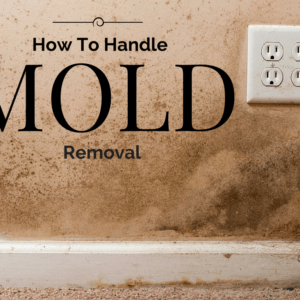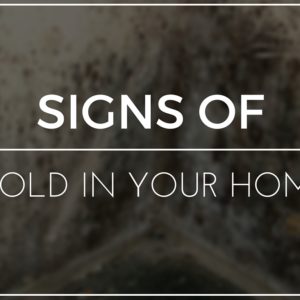September is Mold Awareness Month, a good time to revisit mold in your home—even for a brief time—is a bad idea. Besides all the expensive structural damage it can wreak on your home, there’s an even bigger threat: the health effects of mold can seriously impact you and your family’s lives.
The culprit that invites mold in is moisture, and it doesn’t take long after dampness for mold to arrive. As we discussed in How to Prevent Mold in Your Home, mold and mildew can begin to develop on damp surfaces and produce spores that travel through the air in as little as 24 to 48 hours. That’s why you need mold remediation soon after moisture has invaded.
If left untreated or not taken care of properly, the mold remediation process can quickly become costly and time-consuming. Plus, if an excess water or moisture problem isn’t fixed correctly and completely, mold is more likely to grow back.
Now that we’ve established the importance of taking care of mold remediation in a timely manner, let’s go over what happens if you don’t take care of moisture and mold properly.
Common Symptoms
According to Centers for Disease Control and Prevention (CDC), exposure to a damp and moldy environment may cause a variety of health effects. Common symptoms, which can feel like the flu or allergies, are:
- Nasal stuffiness
- Headache
- Throat irritation
- Coughing or wheezing
- Sneezing
- Runny nose
- Eye irritation
- Skin irritation
The above symptoms are especially common for people who are sensitive to molds. But, as the Institute of Medicine (IOM) found, indoor exposure to mold is linked to upper respiratory tract systems even for healthy people. In fact, exposure to mold, mold fragments or mold spores (whether it’s one time or repeatedly), can cause non-sensitive people to become affected.
Molds produce irritants, allergens and sometimes even toxic substances or chemicals, called mycotoxins. Molds can cause allergic reactions right away or at some point in the future. And here’s something surprising: even when mold is dead, it can cause allergic reactions in people who are not allergic to mold to begin with. Therefore, mold remediation should be performed even in situations where no live mold is present.
Who Is Sensitive to Molds?
Although molds and mildew can potentially impact just about anyone negatively, there are some people who are especially threatened. Most at risk are individuals who deal with the following issues:
- Asthma
- A lung condition
- Weak or suppressed immune system
- Other pre-existing illnesses
It’s also believed that infants and the elderly are at risk. Some people with asthma, cystic fibrosis or other lung condition are most likely to contract invasive aspergillosis, known as ABPA, which is related to the common mold type Aspergillis. ABPA is a serious disease that ultimately damages body tissue, usually the lungs. Other organs can be affected as well, because ABPA can spread throughout the body if mold remediation is not performed in a timely manner.
The Bottom Line
If your home has a moisture problem, get mold remediation as quickly as possible to avoid the health of both your home and the people in it. If you’re having a reaction, get checked by a physician to determine whether or not there’s a deeper health issue at work.
For more information about mold and exposure risks, see our video.
–Michael Fahouris
Founder and owner of Certified Restoration, Michael began his career in the cleaning and restoration industry over 20 years ago and has been a business owner since 1988. Michael has completed hundreds of cleaning restoration and mold remediation projects, and has worked with property managers, insurance agents and adjusters, plumbers, roofers and homeowners. Michael’s philosophy of taking care of customers is the foundation for Certified Restoration’s customer-focused service.

